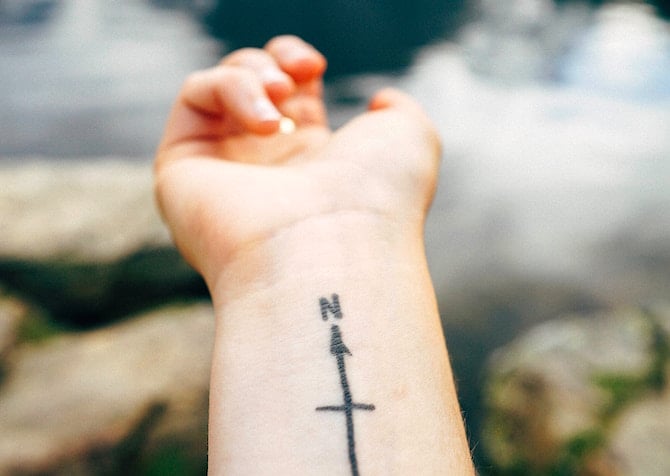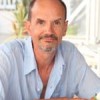People often come to me looking for help to find their life purpose.
They tell me, in retreats and in one-on-one coaching, that they have the intuition of a great gift to share, a mission to fulfil in their lifetime, but they don’t know what it is.
Can I please help?
Someone faced with such a predicament is often hoping for a resolution.
Usually, they seem to hope for one of two types of outcomes:
I will look deeply into their eyes with a penetrating stare, and, after a long ominous silence, proclaim in a low, deep, prophetic voice: “By the power vested in me by the great God Whatshername, I hereby pronounce that your divinely ordained life purpose is to…raise ducks!” At which point they, the supplicant, will fall to their knees in the relief of finally having a direction.
Alternatively, through some cognitive analytic process we will together crunch the data, eliminate the redundancies, and come to a perfect, irrefutable, logical conclusion: “After extensive research, we have concluded that you are 83 percent aligned with software system analysis using COBOL on UNIX systems. Massage therapy with essential oils and channeled dolphin sounds only got a score of 79 percent.”
I have sadly had very little success with either of these approaches.
This preoccupation with life purpose—or a sense of mission—is entirely modern. We only have to cast our minds back to before the Second World War when things were much simpler, albeit more restrictive.
If you were born a little boy you would, more often than not, follow in your father’s footsteps. If daddy was a plumber, a plumber you would also be. If daddy was a doctor, or a lawyer, or a gardener, you knew your place. If daddy was the king, you would inherit the throne. And, back in those days, if you were born a little girl you would, more likely than not, get married young, have babies, and learn to cook and maintain a household.
We busted free of all these restraints in the late 1960s, not only with a second wave of women’s liberation, but also with increased access to education for everyone, increased awareness of racism, and the “out-of-the-box” thinking precipitated by the cultural revolution and born out of the summer of love in 1967.
This busting free of constrictive boundaries has also exacted a price.
To have almost infinite options available—and to also know, deep down, that real satisfaction in life comes from making a contribution, but not knowing what that might be—can create a devastating and immobilizing sense of anxiety. “The train to Your Life’s Destiny is now leaving from Platform Six…” and you’re not on it.
I hear more desperation and despair around this issue than anything else. I hear a painful cry for help, and I remember how this feels.
I also know many people who do deeply know their place in the world. Such people often have big, bold vision, and seemingly endless supplies of energy. Money usually flows quite effortlessly, but is not a central preoccupation. Such people are frequently well respected, celebrated, and honored—although craving for such external validation is not a motivator. Life just seems to work for them.
When I think about people like Barbara Marx Hubbard, who at 88 years old is still traveling the world tirelessly and passionately, talking about conscious evolution; or Lynn Twist, who at 72 is on fire for saving the Amazon rainforest (and I could gladly name hundreds more), it is clear that their rock-solid confidence about their place in the greater scheme of things did not come from anyone pronouncing a decree, nor did it come from any logical or analytic process.
Seekers of “life purpose” often assume that we will first get clarity about what our mission is, and only then will it be time to take the first small steps of action.
But I don’t think it works like that.
I don’t think it ever has, and I don’t think it ever could.
We do each have our place in the big dance of things. We do each have a vital role to play, but it has very little to do with what our minds conceive or understand.
We discover our life purpose by living our human lives, starting right now—today—with curiosity, with passion, with gratitude, and with deep compassion and mercy for the suffering of others.
If we live each moment like this—without postponing for an instant longer—we will, before too long, look over our shoulders at our footsteps in the sand behind us, and say, “Aha! Now I see. This was my purpose.”
Knowing our life purpose has little to do with cognitive understanding, and everything to do with disposition.
It is not something we hope to discover later, after a process of introspection. It is something we boldly decide to live now. Not even in five minutes, but now, through a deep breath and a shift of disposition.
We may not know the ultimate fruit of this shift. We will only find that out later. Showing up is 99 percent of what is needed.
Postponing anything only trains us more deeply in a life of postponement. Small action now becomes a solid foundation for even more bold action tomorrow.
Here are a few bold steps (or “practices” as I love to call them) that will immediately shift our disposition in the decisive direction of the greatness we were born to live.
1. Take time for nothing every day.
I like that time to be mega-early, before the dawn. Sit for 30 minutes, just observing the automatic thought process, ready and available for the “Gravity of Grace” to pull you into itself.
Regular sitting helps us detach from the addictive clutching of thought and reactive emotion, from the endless internal chant of I want…I want…I need…
In other words, sitting helps us get sane.
2. Write your vision.
Write a vision of life as you would like it to be in one year, two years, five years, 10 years, 50 years, and in 100 years. Take about half an hour on each of these.
At the start, these vision statements will be more me-oriented, more around “my” personal needs and desires. But as the time-span lengthens, the vision will expand beyond you to the needs and well-being of others. Even, perhaps, to people not yet born.
3. Invite role models into your life.
My friendships with John Gray, Barbara Marx Hubbard, and Lynne Twist remind me of what is possible, and a good use of a human life. Find those relationships which do the same for you.
4. Increase your energy.
Whether through running, dance, Qi Gong, making love, or anything else that works for you, take small steps to run more energy through your body.
You may feel more emotional, sometimes more out of control, but you will also feel more passionate and inspired.
5. Take small steps connected to long-term vision, starting today.
You can plan to write a book, launch a website, or change the world, but all of those bigger plans can also be a means of postponing.
Write a blog, make a live Facebook video, talk to a friend. Make it real today.
~
I hope these suggestions are helpful to you. I offer them in the spirit of friendship and collaboration.
 Share on bsky
Share on bsky






Read 1 comment and reply